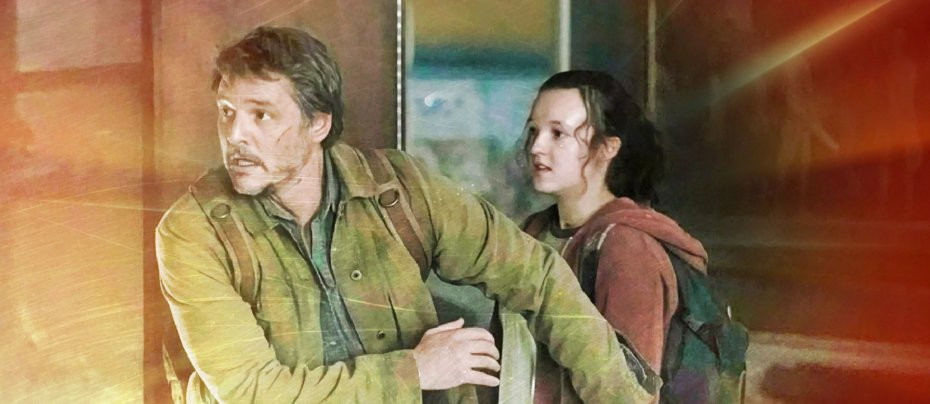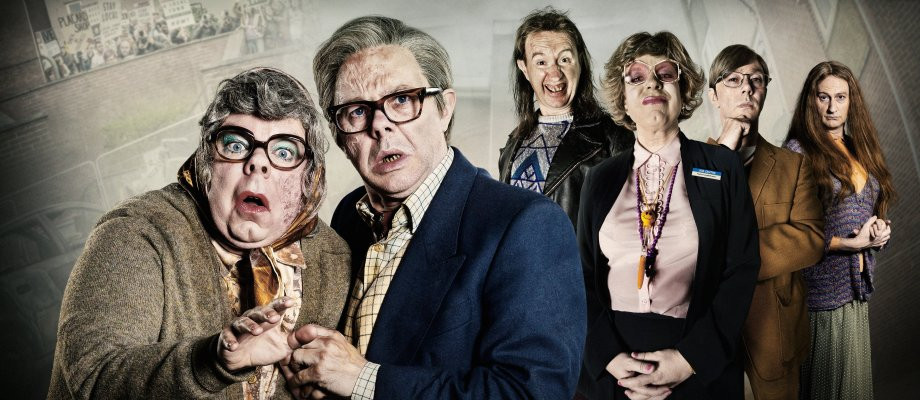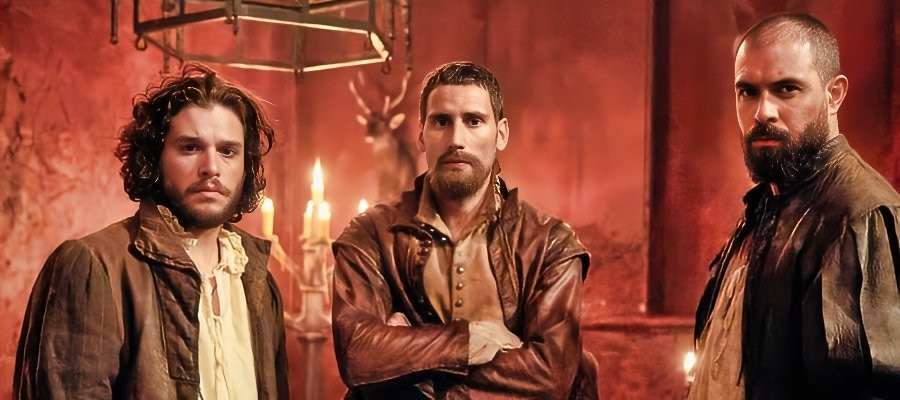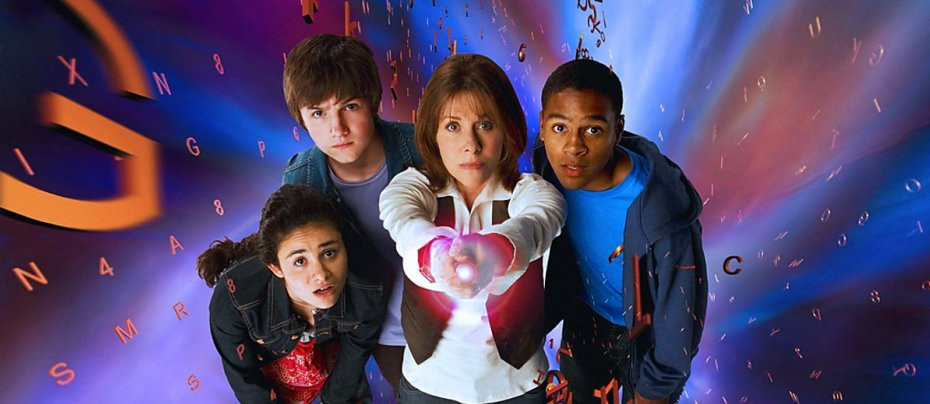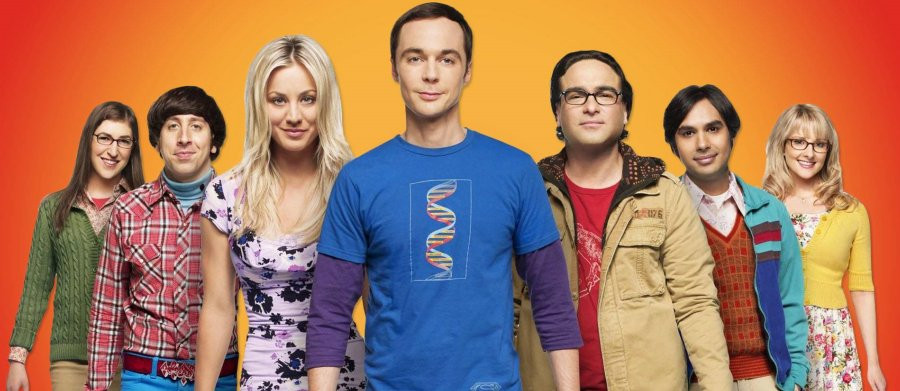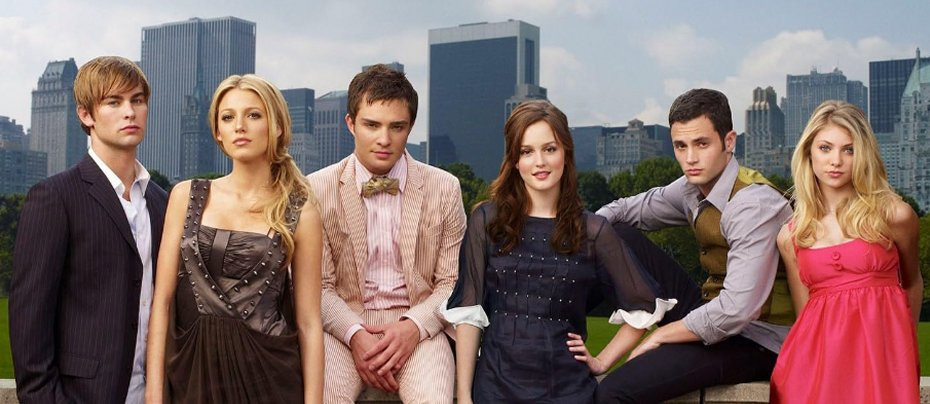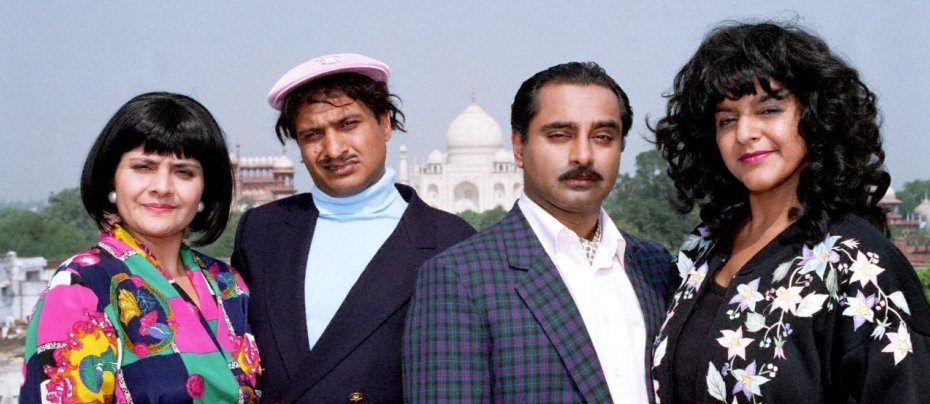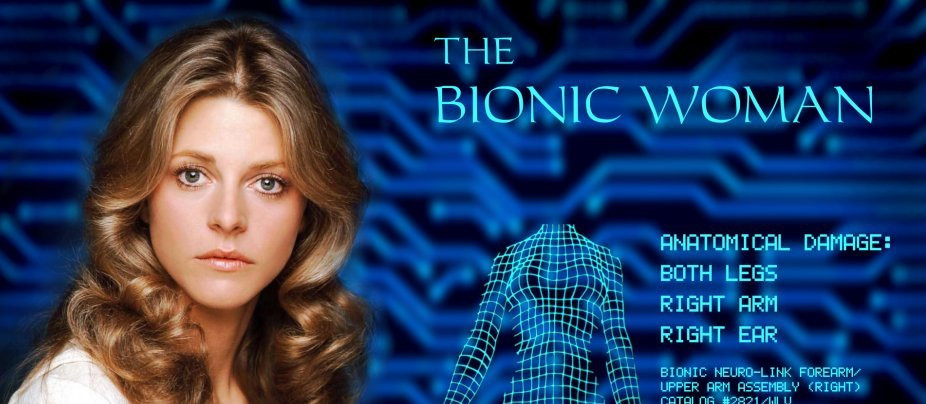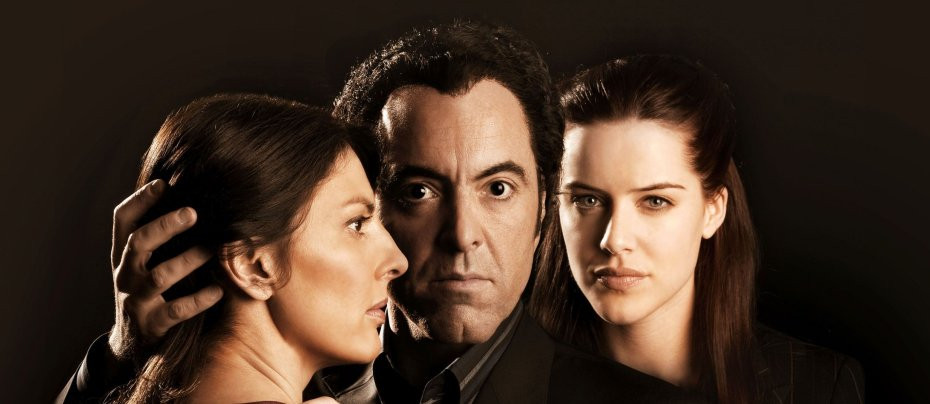
Jekyll
2007 - United KingdomHyde has frequently been portrayed as a superhuman being in modern adaptations, and ‘Jekyll’ runs with this
Review by Daniel Tessier
Jekyll is just one of many adaptations of Robert Louis Stevenson’s classic gothic mystery The Strange Case of Dr Jekyll and Mr Hyde, which, since its publication in 1886, has become one of English literature’s most commonly performed stories. At the time of writing, Jekyll is sixteen years old, and it’s not even close to the most recent version. Starring James Nesbitt in the dual role of Dr Tom Jackman and his alternative self Billy Hyde, Jekyll is a sequel to the original novel rather than a straight-up adaptation, but even this isn't unheard of. So what is it that makes this six-part BBC series stand out from its many cousins?
The concept for a new, modern-day retelling of Dr Jekyll and Mr Hyde occurred to producer Jeffrey Taylor of Stagescreen Productions in the mid-1990s, but after several abortive attempts to get it made in the States, he eventually found a like-minded co-producer in Elaine Cameron of Hartswood Films once he returned to the UK. Cameron was looking for a supernatural thriller to shop to the BBC, and Taylor had the basic idea, but it needed the right scriptwriter to bring the project to life.
Steven Moffat might have been born to write Jekyll. In 2007, he was best known for his sitcom work, including Joking Apart, Chalk and Coupling, as well as his earlier acclaimed children’s series Press Gang. This might not have marked him as a natural for a gothic horror revival, but his work, particularly Coupling, already showed that he had a remarkable knack for complex stories told from multiple points of view. Farce is basically a mystery thriller told for laughs, after all. Around the time work on Jekyll was getting started, Moffat wrote his first scripts for the revised Doctor Who, gaining a reputation for both the creepiest and most convoluted storylines. Now, with similar resurrections of Sherlock and Dracula under his belt, it’s hard to imagine who else could have written this (well, maybe Mark Gatiss, but he does turn up.)
After many sessions in which Moffat, Cameron and Taylor hashed out the details of the plot, Jekyll took form as a distinctly new take on the story. Again, while the sequel approach has been tried before, Jekyll embraces the fact that the original is a well-known and well-worn tale, an approach that seems almost essential in a modern adaptation. Far from Stevenson’s original intention of an outright mystery, the story of Jekyll and Hyde is now so ubiquitous that the names have entered our lexicon. Moffat found himself having to continually point out in the script that the book didn’t exist in the series’ world, deciding eventually to scrap that idea altogether. Instead, the characters in Jekyll are all fully aware of the book and the original story, with the twist being that it was never a work of fiction, and that Stevenson instead recorded Dr Jekyll’s truthful account.

Jekyll itself opens in contemporary England where Tom Jackman is struggling to manage a life where he periodically transforms into a stronger, more violent alter ego. The casting of Jackman and his other self was, of course, essential to making Jekyll work, and James Nesbitt is absolutely perfect in the dual role. In 2007, Nesbitt was a regular face on television thanks to leading roles in Cold Feet and Murphy’s Law (the latter being written for him), with a reputation for characters that were charming, seductive and a bit dangerous. His role in Jekyll allows him to both tone this down and crank it up to maximum. Dr. Tom Jackman is introduced as a quiet, repressed and emotionally closed man, although flashbacks show an earlier, somewhat more charming and outgoing personality before he abandoned his family and moved into a fortified basement apartment. Even when we see the earlier, more carefree Dr. Jackman, restrained is the overarching word. It's a careful, measured performance, one that stands in stark contrast to his turn as Mr Hyde.
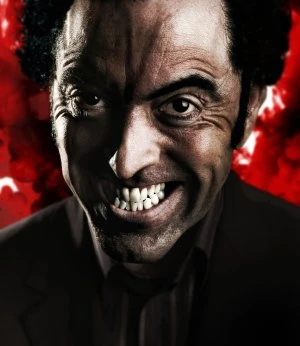
The other person inhabiting Jackman's body is a complete contrast, a storm of emotional excess. Unlike some versions of the Jekyll/Hyde character, there are only minor physical differences between the two personalities. Nesbitt wears black contact lenses, a hairpiece to lower his hairline, and has a slightly built-up chin and nose to give his face a subtly altered look. When “Uncle Billy” discovers Jackman has a family, he passes himself off as Tom's cousin, and it's quite believable. While the make-up helps, it's really in Nesbitt's performance. His entire bearing changes when he becomes Hyde, imbuing the character with the relentless confidence of someone who knows he's virtually unstoppable and can do whatever he likes. Nesbitt dials up the charm and the swagger as Hyde, aka “Mr Sexy-Pants,” portraying him as an irresistibly charismatic and aggressively sexual character. Hyde is frequently described as a child, albeit as one with a man's body and drives, and he has all the restraint of a two-year-old. While he expresses terrifying anger and violence, he also expresses pure joy in his existence, and happily prances through life with a broad smile on his face, mocking everyone around him.
Hyde has frequently been portrayed as a superhuman being in modern adaptations, and Jekyll runs with this, suggesting he's next stage of human evolution. He's incredibly strong, fast and resilient with heightened senses, and his enhanced abilities extend to his intelligence. While he and Jackman don't have access to each other's memories, save for brief flashes, Hyde is born with all the intrinsic knowledge that he needs to survive, and has the ability to focus on information in a way that even Jackman, a research scientist, would envy. Hyde can replay memories and zoom in on tiny details in order to make astonishing leaps of logic. It's an effective storytelling tool, imaginatively realised by both directors on the series, Douglas Mackinnon (Doctor Who, Good Omens) and Matt Lipsey (Human Remains, Psychoville). It's also very obviously a dry run for the same technique being used to even greater effect on Sherlock, one of a number of storytelling devices that Moffat will refine for his later work.
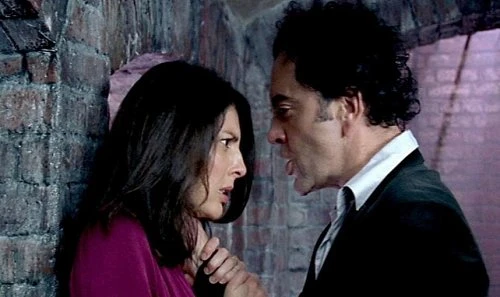
Given how dangerous Hyde is, Jackman forces himself to leave his family, but can't quite bring himself to break away completely. His wife Claire is left confused and infuriated by his sudden change in behaviour, appearing to her as the world's most baffling mid-life crisis. Played by Gina Bellman (Blackeyes, Leverage), who had previously worked with Moffat on Coupling, Claire is a tricky role. She has to be an ordinary woman caught up in an extraordinary situation; someone who harbours secrets of her own, even from herself; and the woman who entrances both Jackman and Hyde. Unfortunately, Bellman's not really up to it. She particularly struggles with the pithy dialogue that Moffat likes to give his female leads (which is surprising given how much she'd worked with him before), but even the more natural lines don't always come across very believably. Andrew Byrne and Christopher Day play their sons – twins, naturally – who don't have much in the way of characters but do what they need to do.
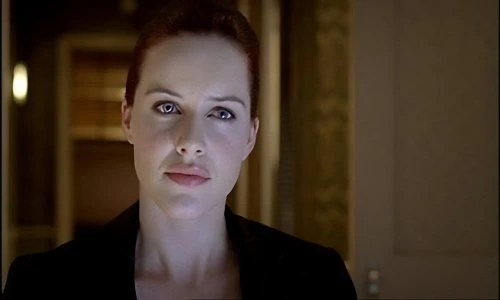
Meanwhile, Jackman has a new woman in his life, the young psychiatric nurse Katherine Reimer, played by Michelle Ryan (EastEnders, The Bionic Woman, Merlin). Jackman employs Reimer to essentially act as his keeper, managing his schedule with Hyde according to a tenuously arranged understanding (the two personalities communicate through messages on a Dictaphone, which was pretty old-fashioned even in 2007). Reimer is set up as a significant character, hinting that she could become a love interest or an antagonist, and Ryan does quite well with another tricky role (and she can convincingly play scared, which is important). However, she vanishes out of the main storyline for a huge chunk in the middle as Jackman and Hyde's background is explored.
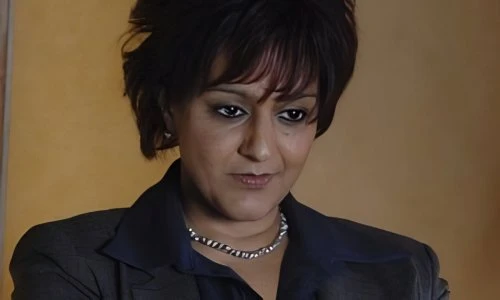
Claire has also engaged the services of a private detective, Miranda Callender (Meera Syal – Goodness, Gracious Me, Broadchurch, The Sandman) and her assistant/wife Min (Fenella Woolgar – Call the Midwife, Inside Number 9, Harlots), who make for a funny and charismatic double-act drawn into the increasingly complicated life of the Jackmans. Denis Lawson (Bleak House, New Tricks) plays Tom's friend Peter Syme, who's so reserved and business-like that he makes Jackman look positively flamboyant.
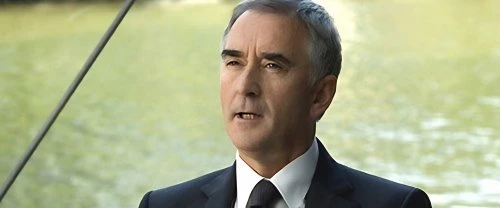
Over the first couple of episodes, it becomes clear that there's a conspiracy behind Jackman's life, one that calls into question just who he can trust. His and Syme's employers, Klein and Utterson (the latter named after the protagonist from the original novel), a vast American scientific corporation, have been desperately trying to isolate the formula that originally turned Dr Jekyll into Mr Hyde. To this end, they involve some outright villains who are clearly wrong'uns from the outset. Paterson Joseph (Peep Show, Neverwhere) portrays the arrogant and frankly aggravating Maddox, who's in charge of the Hyde operation, while his superior, the hateful Ms Utterson herself, is played by Linda Marlowe (EastEnders, The Borgias). Both of them put on absolutely dreadful American accents, enough to make you wonder if it was deliberate. Maybe the producers didn't like being bankrolled by BBC America...

While the conspiracy deepens and the lengths to which Klein and Utterson will go becomes clear, the series picks up the pace and enters outright thriller territory. However, it never loses sight that it's about Jackman and Hyde and their bizarre joint existence. To begin with, Hyde, although a joy to watch, is presented as an outright monster. While the main Hyde make-up is, as noted, minimal and subtle, there are occasionally flashes of what we might call “pure” Hyde, with distended fangs that just about stay on the right side of ridiculous. More than once, Jackman's transformation is compared to that of a werewolf, including a very silly moment where Hyde howls at the moon.
However, it gradually becomes clear that he has his own moral core, albeit a skewed one, and that he and Jackman aren't nearly as different as they think. Over six episodes, the narrative jumps back and forth, with events first seen from Jackman's point-of-view then followed up from Hyde's, each of their experiences adding up to a single narrative. It's often very funny, but frequently brutal (although never quite straying into graphic gore), and when Hyde lets rip, it's hard not to feel that his victims rather deserve it. The series is kept lively by a number of set pieces that are designed to stick in the memory, with perhaps the most notable being in the second episode, in which Maddox tries to force Hyde's manifestation during a family trip to the zoo by having one of the twins dropped into the lion enclosure. At the end of the day, you feel sorry for the lion...

The strongest episode is the fourth, which flashes back to Jackman's very first transformation into Hyde, and reveals more about what triggers his changes, while in the present, Jackman is held captive and Claire is forced to confront the truth of her husband's literal double life. The fifth episode is also memorable, as Hyde's abilities are revealed to include a genetic memory back to the experiences of the original Henry Jekyll. Nesbitt gives another measured performance as the good doctor, albeit with a Scottish accent that's almost as bad as the American ones, opposite future Moffat collaborator Mark Gatiss as Robert Louise Stevenson himself.
The series twists and turns from start to finish, with some of the twists making you slap your head and go “Of course!” and others, particularly towards the end, being so ludicrous as to stretch belief a bit too far. Some even make you feel both. There are some clunky attempts to stretch out the mystery until it's time for a big reveal; it's hammered home that Jackman can't be Jekyll's descendant because the doctor died a virgin, assuming we wouldn't work out that Hyde, who'll do it with anything that moves, must clearly have bastards all over Britain. This unfortunately makes the characters look incredibly slow – no wonder Hyde gets annoyed waiting for them to catch up.
At the same time, though, the script plays with our expectations and assumptions, which helps keep some twists from being immediately obvious. It also allows the programme to play with the conventions of its genre. Perhaps the best example is a lengthy teaser sequence which sees an incredibly intimidating, seemingly invincible mercenary, recruited and training for the inevitable showdown with Hyde. It builds tension and expectation for what will surely be a long and bloody battle, only for the cheeky scamp to chuck him off the roof without even turning round.
Events escalate to chaotic levels for the final episode, which manages to be both predictable in some ways and entirely baffling in others. Altogether, though, it works, by the simple fact that the series is relentlessly entertaining. Moffat's script and Nesbitt's performance meet as a perfect combination of horror, pathos and silliness, with the series balancing such disparate tones to great effect.
Moffat has revealed that a script for a sequel series exists, but there has, as yet, been no interest in picking it up. The time has doubtless passed, and in any case, it's hard to see what else there is to say. While there are a number of plot threads left dangling, which would provide an easy point of continuation, the story of Jackman and Hyde themselves is so thoroughly explored in the series that there seems little need to visit it again. There will be other, equally inventive takes on Dr Jekyll and Mr Hyde in the future, of course, but for now, Jekyll stands as one of the most fascinating and entertaining versions ever made.
Seen this show? How do you rate it?
Seen this show? How do you rate it?
Published on October 31st, 2023. Written by Daniel Tessier for Television Heaven.


